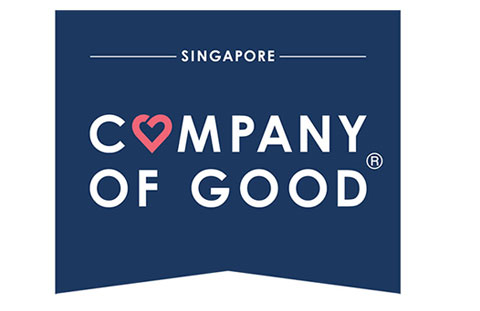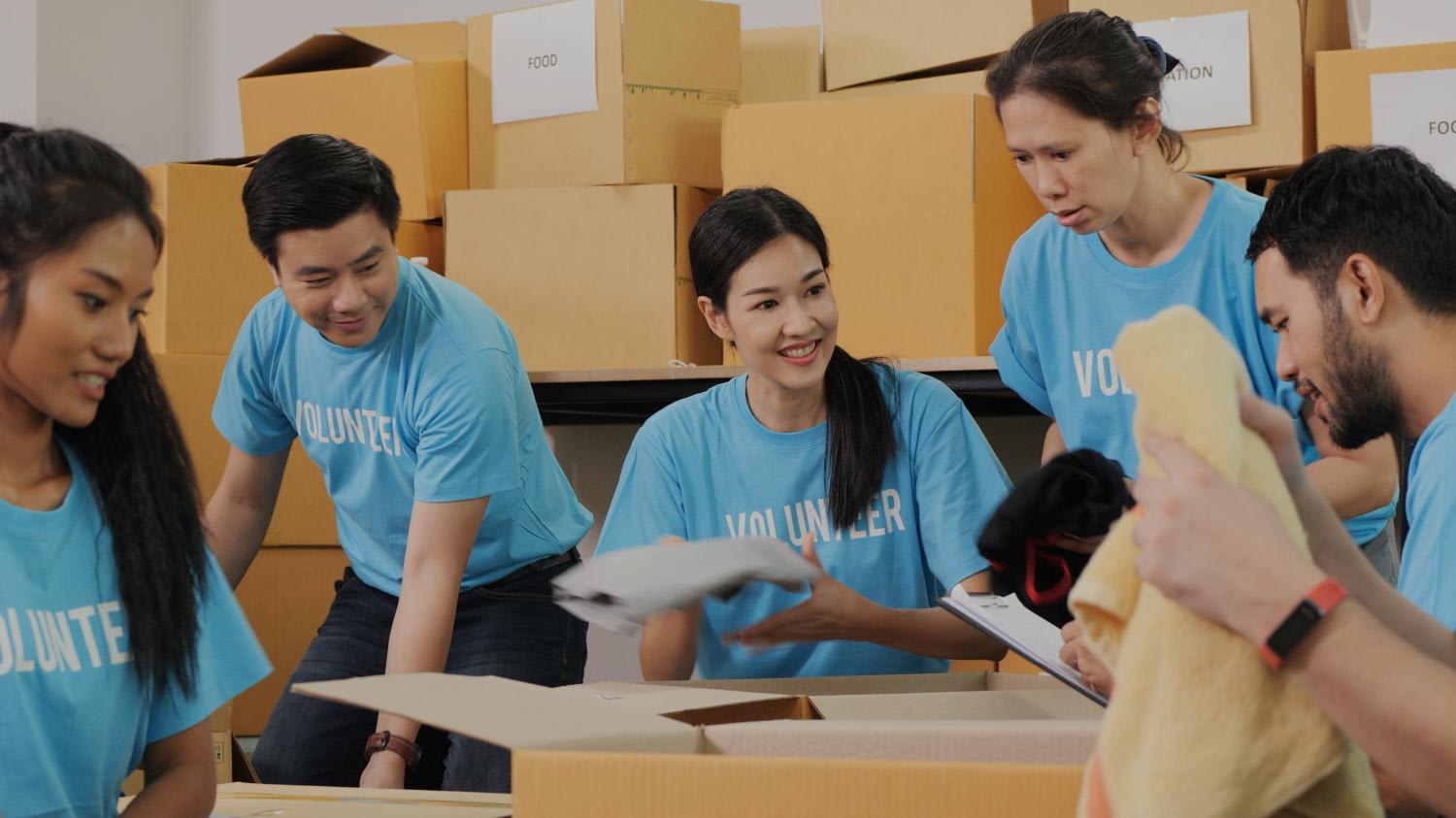As workers return to the office and organisations adapt to the next normal, two years of pandemic-fuelled remote working has changed employees’ expectations. Businesses and workers have come to appreciate the importance of intangible benefits like mental health support and improved workplace fairness and the usefulness of video conferencing.
For some companies however, it didn’t take a global pandemic for them to put their employees’ needs first.
Take for instance, homegrown specialty coffee company The Bettr Group.
Being habitually late for work may be grounds for a stern talking-to, or even for being fired. However, this organisation tries to find out the reasons for an employee’s tardiness. It then attempts to work out a solution that addresses both the employee’s and company’s needs, such as adjusting the time and duration of their shifts.
Doing this is part of the social enterprise’s ethos, which is that business should be a force for good. Ms Pamela Chng, one of the founders of the Bettr Group – which comprises Bettr Barista and Bettr Coffee Co – explained that many of its employees are marginalised women and youth who hail from disadvantaged backgrounds. Issues such as overcrowding at home and sleep deprivation can impact their ability to be punctual.
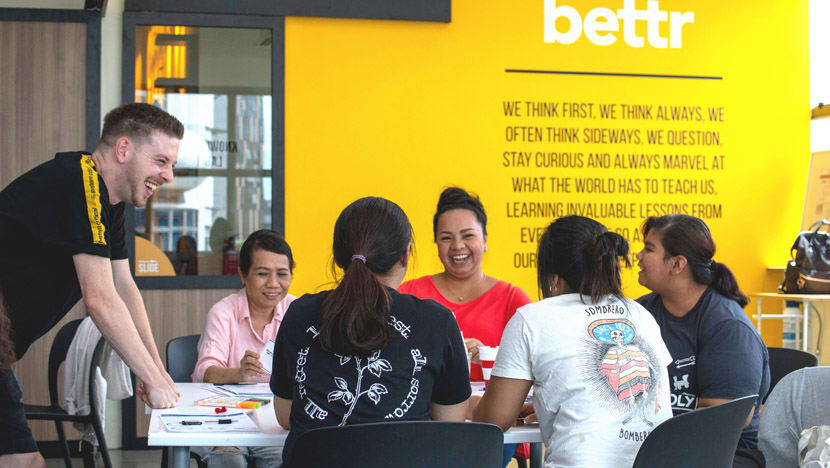
In Ms Chng’s view, rethinking the employer-employee relationship is possible – and indeed even beneficial: “It’s about understanding what the individual’s needs and challenges are, and asking, how can we structure work to support them? We have to make the change, because if businesses are not willing to redesign the way they function in the world, it’s impossible to include anybody who doesn’t fit in the box.”
This can reassure workers that their organisations take their wellbeing seriously and increases the likelihood of improved worker retention and performance. For instance, according to Gallup, employees who thrive in career, social, physical, financial and community wellbeing are 81 per cent less likely to search for a new employer in the next year.
BUSINESSES IN PURSUIT OF THE MULTIPLIER EFFECT
The Bettr Group isn’t alone among companies that are pivoting towards being purpose-driven organisations – ones that produce profitable solutions for not just the company, but also for people and the planet.
For instance, SAP Asia – a market leader in enterprise software that helps turn businesses into sustainable, intelligent enterprises – has initiatives that encourage employees to help social enterprises address their business challenges.
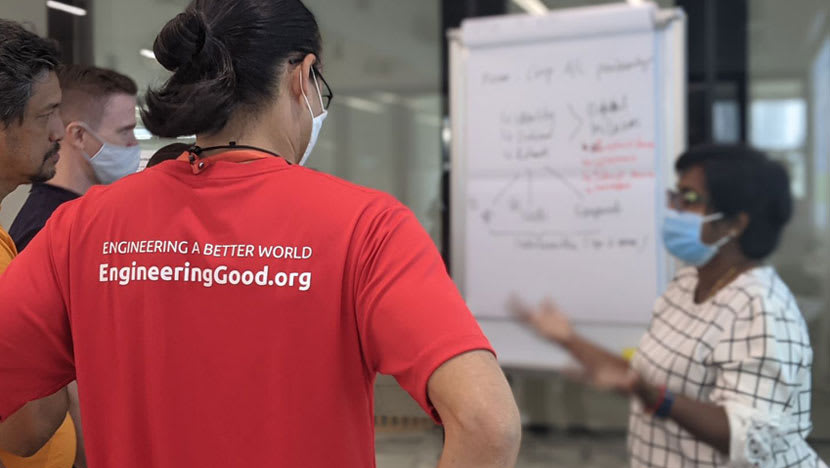
Botanical gelato producer Birds of Paradise is positioning its business to create positive outcomes that also involve their network of suppliers, employees and customers.
To be a purposeful and progressive company, Frasers Property seeks to incorporate sustainability practices into every stage of its value chain – from business strategy to operations – in its environmental, social, and governance (ESG) roadmap, which are aligned with the company’s goals such as reducing carbon emissions.
These are just four of 112 organisations that have been conferred as Champions of Good 2022. Launched in 2017 as a national recognition initiative by the National Volunteer and Philanthropy Centre (NVPC)’s Company of Good, it recognises organisations that are not only doing good, but also multiplying the effect of these efforts by collaborating with their partners and stakeholders.
These organisations are moving the needle on what it means to run a business that does good. Going beyond corporate social responsibility efforts that are centred on external initiatives, doing good has now become a core part of business strategy, embedded from the beginning as the driving purpose behind a company’s brand, policies and operations.

From MNCs to SMEs, we take a closer look at how each of these Champions of Good incorporates doing good into its business, and how they seek out connections, build ecosystems and think creatively to multiply the impact of their efforts in doing good.
BETTR GROUP: REDESIGNING A BETTER BUSINESS
The Bettr Group’s Ms Chng recalls how her experience of running her first business, a web consultancy, led her to consider how a business could be restructured, and success redefined in a way that would align with her own values and goals.
“I stumbled upon the idea of a social business where purpose is not just embedded, but at the core of why that business exists,” she said. “It was the hope that we could create a financially, socially and environmentally sustainable business model and show people that it can be done.”
Today, the Bettr Group is Singapore’s very first certified B-Corporation as well as a Champion of Good.
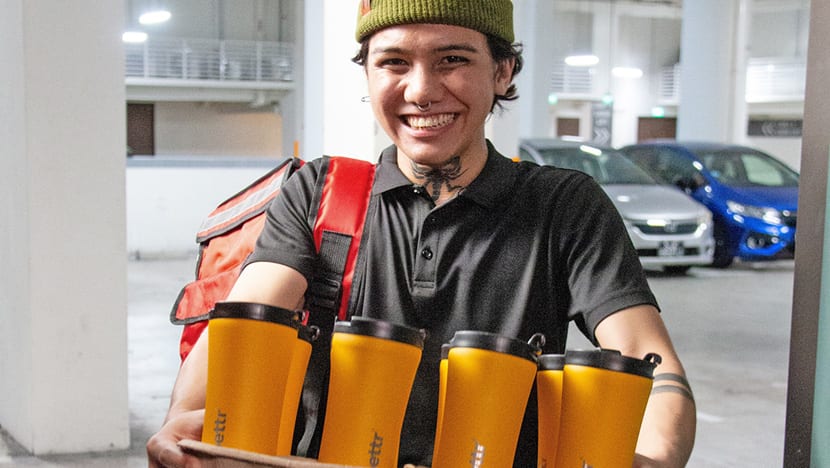
For Ms Chng, the Bettr Group is the hopeful beginning of a wide-reaching change in the role and impact of a successful business: “As young people move into positions of authority, responsibility and power, they get to decide how they want to create the new systems of the future.”
AN ECOSYSTEM FOR DOING GOOD
Over the last decade, the Bettr Group has built a corporate ecosystem that connects it with the government, community and social organisations and corporations. This enables the company to transform lives in a truly sustainable manner, beyond offering training and a job.
According to Ms Chng, even after individuals have been employed, the Bettr Group continues to work with their assigned social workers to ensure that they are supported, as part of its holistic approach to training and development. It also works with corporate partners to create inclusive spaces where newly trained baristas can flourish.
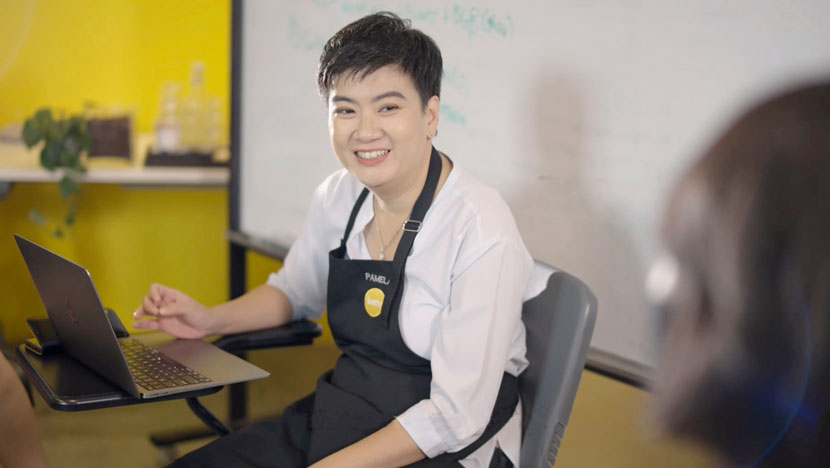
SAP ASIA: AIMING TO BE THE BEST AT MAKING A DIFFERENCE
Some of SAP Asia’s most notable initiatives include SAP Social Sabbatical — a programme for employees to do pro-bono consulting and solve concrete business challenges for social enterprises — as well as the ASEAN Data Science Explorers Initiative (ASEANDSE), in which SAP employees engage in skills-based volunteering. This involves SAP employees who are knowledgeable in SAP Analytics Cloud conducting train-the-trainers sessions in the 10 ASEAN states to teach data analytics to lecturers and students.
Said Ms Verena Siow, the president and managing director of SAP South East Asia: “By encouraging and supporting employees in skills-based volunteering, we power equitable access to economic opportunity, education and employment, and a circular economy.”
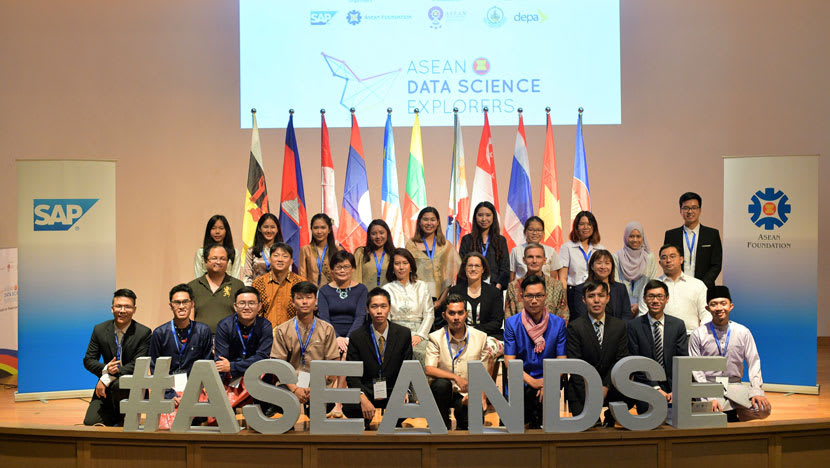
For instance, ASEANDSE has – since its inception in 2017 – taught data analytics skills to more than 30,000 youths and 2,000 educators from over 700 higher education institutions in the region.
Belief in this goal is shared by its employees, 94 per cent of whom acknowledge the importance of pursuing purpose and sustainability, in a company survey.
“We empower them to take action on causes they care about,” said Ms Siow. “As humans responsible for social progress, we must not only embrace, but also connect and intersect, our diverse experiences to build an inclusive society where everyone thrives.”
These initiatives include the ASEAN Women Impacting Social Entrepreneurship (WISE) Fellowship incubator building programme, and the ASEAN Social Enterprise Development Programme in which two local social enterprises were shortlisted to present their business pitches. The initiatives have the added benefit of adding to the pool of young, growing talent.
According to Ms Siow, SAP’s approach to doing good has led to greater talent attraction. Furthermore, previous analysis between 2015 to 2017 showed that every added percentage point in volunteering increased employee engagement and profitability.
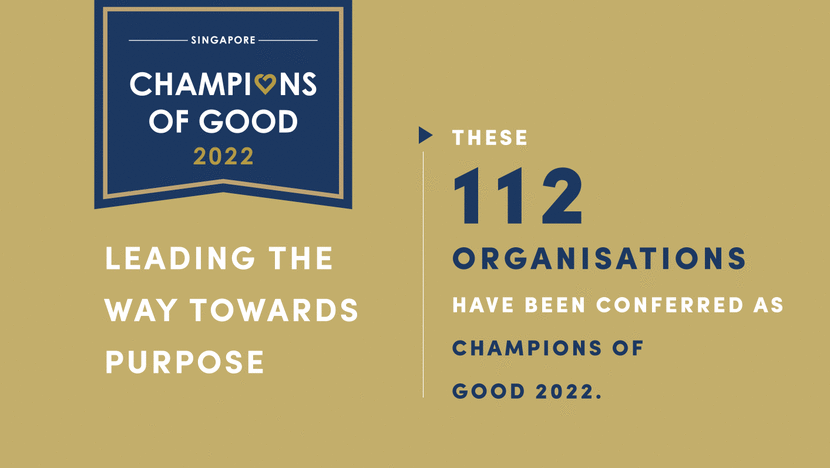

BIRDS OF PARADISE: FORGING CONNECTIONS THAT BUILD PROGRESS FOR SOCIETY
“Traditionally, businesses use connections solely to derive financial profit,” explained Birds of Paradise founder Edwin Lim. “At Birds of Paradise, we believe that businesses are uniquely positioned at the centre of these connections and have an incredible opportunity to use them to drive progress for society at large.”
He cited the example of the brand’s inclusive hiring partnership with APSN Delta Senior School (DSS).
“Birds of Paradise provides a training venue where students can gain real-world skills and potential future employment, which fulfils the school’s raison d’etre. For ourselves, it gives us an additional source of manpower, and it helps our employees to become more nurturing as they work together with others of differing abilities.”
Connections were key to the formation of this successful partnership. Mr Lim reveals that when the company was looking to expand its manpower pool, it looked to its long-term community partner, animal-assisted learning centre EQUAL, for organisation recommendations – and through them, connected with APSN DSS.
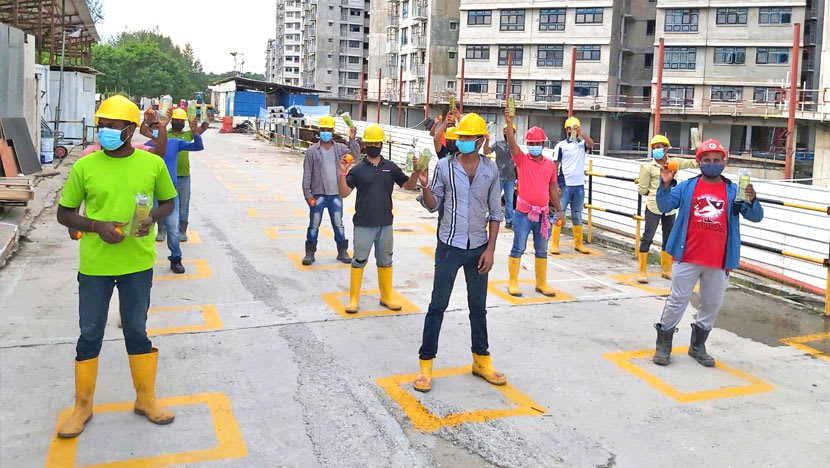

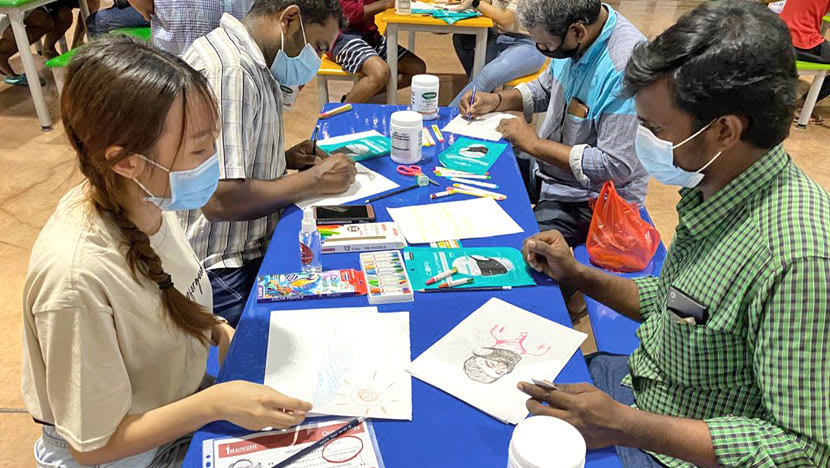



When the opportunity arose, Birds of Paradise likewise introduced EQUAL to fashion brand In Good Company, a business partner which it was sharing a retail space with at Jewel Changi Airport then.
“As the relationship developed, In Good Company went above and beyond,” recounted Mr Lim. “They’ve even organised a fund-raising event in the form of a visit to the EQUAL stables for their customers, and some of their team members still volunteer at the stables till this day.”
He concluded: “We strongly believe that for sustainable giving to work, we must think creatively to engineer win-win-win outcomes for all parties, not solely for the charity or beneficiary.”
FRASERS PROPERTY: CREATING PLACES FOR GOOD
The built environment accounts for nearly 40 per cent of global carbon emissions, points out Ms Adeline Ong, the senior vice president and head of Group Strategic Communications and Branding at multinational real estate developer Frasers Property Limited. How then, can companies apply sustainable operating practices in their businesses?
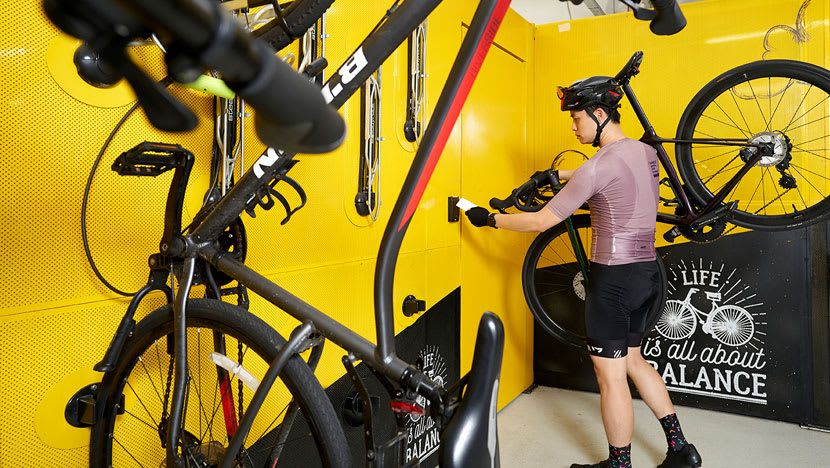
The answer: By being mindful of environmental and social impacts and putting together an ESG roadmap that incorporates sustainability practices throughout the entire value chain. “From investment to design, development and operations, we are placing particular emphasis on carbon reduction, energy efficiency, renewable energy and sustainable innovations. These are key elements to how we think our purpose should be embedded into our business activities,” said Ms Ong. This manifests in a range of initiatives from sustainability training for employees to eco-friendly retail design guidelines for Frasers’ malls.
“We also have in place a Group Responsible Sourcing Policy and a Group Corporate Functions Procurement Procedure, which steers our approach to influence the sustainability practices of our suppliers, vendors, and contractors,” added Ms Ong.
Frasers Property has also leveraged the power of community connectedness in its flagship Inclusive Spaces initiative, a biennial challenge aimed at building more inclusive communities via a design conversation around real estate spaces.
Inclusive Spaces started in 2019 with a hackathon which saw participants co-creating universal design solutions to benefit people with disabilities for Frasers Property malls. The 2021 iteration was an active ageing-themed collaboration with social enterprise Design For Change, which saw over 100 primary and secondary school students working with senior citizens to co-create and reimagine ideas for more inclusivity in real estate projects through inter-generational dialogues.
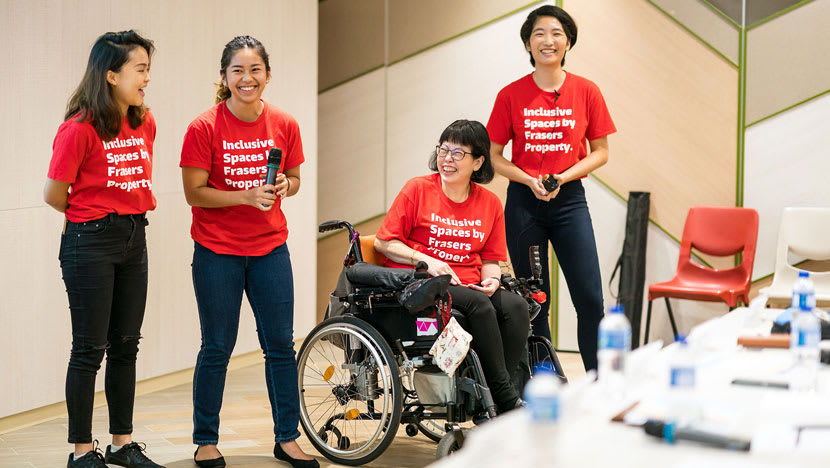
“Our efforts to partner the community in creating more accessible and enriching real estate spaces do not stop in Singapore,” said Ms Ong of the company’s plans to bring Inclusive Spaces to more markets. “This, we believe, is integral to our purpose of inspiring experiences and creating places for good.”
PROFIT VS. PURPOSE? WHY NOT BOTH?
Viewed through a wider lens and over a longer timeframe, initiatives like these don’t just benefit business ecosystems. They can, if embraced effectively by all players, make it possible for future populations and decision-makers to bridge the gap between profit and purpose. Empowering workers to leverage corporate resources or their professional expertise to do good can boost employee morale and improve productivity. Robust sustainability practices can lower costs and regulatory risk while enhancing the company’s image to customers and investors.
SAP’s Ms Siow feels that the company’s recognition as a Champion of Good is a validation of its new and broader focus on societal and environmental impact, beyond financial measures: “We believe that achieving this accolade creates business value beyond revenue or profit growth, while taking into consideration the long-term impacts on society as a whole.”










